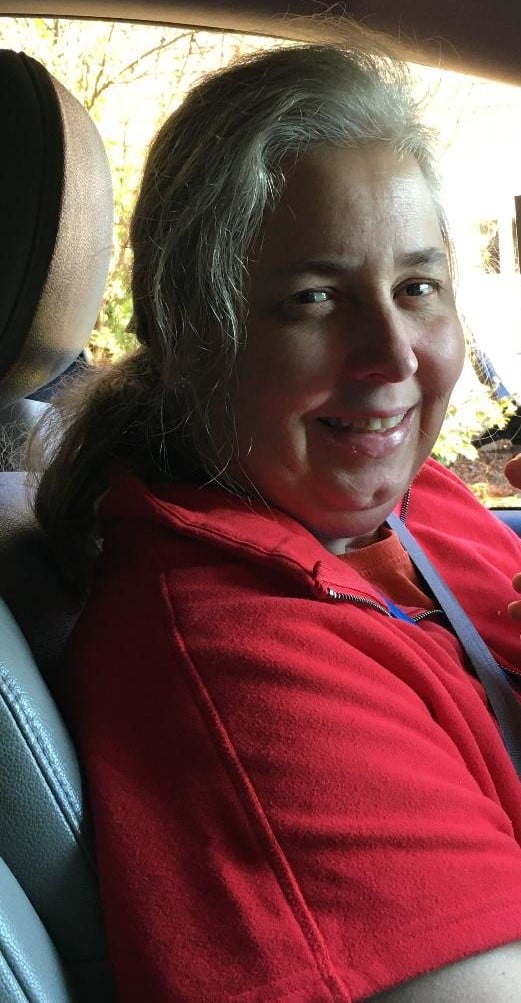 When my grandmother came to live with us because she suffered from the middle stages of Alzheimer’s, we made jokes to ease some of the day to day sharpness of having her forget basic things; "Every day, you meet new people," "Every day, you get to try new foods and go new places," and her personal favorite, "It’s new to you." She’d laugh and sometimes add to the joke herself because she always had a merry heart. Even so, sometimes it was still too sharp a reality for all of us to allow humor to soften the edges, because sometimes the knowledge that some day would be the some day she wouldn’t know our names overwhelmed.
When my grandmother came to live with us because she suffered from the middle stages of Alzheimer’s, we made jokes to ease some of the day to day sharpness of having her forget basic things; "Every day, you meet new people," "Every day, you get to try new foods and go new places," and her personal favorite, "It’s new to you." She’d laugh and sometimes add to the joke herself because she always had a merry heart. Even so, sometimes it was still too sharp a reality for all of us to allow humor to soften the edges, because sometimes the knowledge that some day would be the some day she wouldn’t know our names overwhelmed.
The soul trapped by the worldly condition of Alzheimer’s is still the soul we’ve always loved and are still called to love. We’re just being called to love more perfectly. Alzheimer’s takes away that part of the person that can in this world and in this time, reciprocate. Because of our failed and fallen condition, what we see sometimes takes over as the whom we serve, eventually becomes less and less capable of reminding us of why we love. Undergoing the sorrowful mysteries of life is supposed to grow our understanding of what it means to love as God loves, as Mary loved. But the long hours and minutes of strain and stress of the day often cloud our ability to serve with pure obedience and perfect humility. In those moments, we serve of memory and obligation and not always with a full heart. These are times when we falter, when we only can see the veil.
What all people who have this diagnosis become to the rest of us is the constant reminder to be present. At some point, they may not know or be able to show that they know, but we know we are present and that they live. When we kneel or sit or stand before the Eucharist, we cannot see Jesus, we cannot smell him or touch him or put our fingers into his wounds but we know that host is Christ, not in symbol, in substance. As Catholics, we believe this in our hearts and bones; that Christ is the Eucharist, the Eucharist is Christ. We know Christ is fully present every time in every consecrated host, in every drop of sacramental wine.
We are called to love as God loves; and that means, we don’t get to place a barrier between our hearts, and those whose lives come into contact with ours. To be Catholic is to have a vocation to love, a covenant with God to imitate His love on Earth, to be Eucharist to others; to bring Christ to others and others to Christ.
Just so, we know that even if the one we love is unresponsive to our calls or our touch, the soul remains within the body, and we must love that person as we would love the Eucharist, knowing that the true person is there even if the veil of Alzheimer’s and our own worldly eyes and heart or hands cannot feel their presence. We are not called to have ecstatic validating moments to proclaim our faith, we are called to love when those ecstatic validating spiritual moments are absent; it is those moments when loving requires everything, that our faith is not proclaimed but revealed.
The suffering of those we love, calls us to prayer, to fall on our knees and beg for grace as nothing else on this Earth can. The suffering of those we love reminds us that the road to the cross is one we are always traveling. It does not make the suffering any less painful, to watch a person fade, but knowing that even this can be made to have meaning, to reflect love’s endless capacity to heal does make it easier to keep walking even in the face of death; to get through this moment, and the next or the next or the next, with the knowledge that the grace will come tomorrow to get through tomorrow if we just keep going and keep loving. When we get to that point, where what we do feels like nothing, but we do it anyway, finally, we will have for that moment, loved as God loves.
In the total that is our lives, we will play every part of the passion at some point, and always, we have a cross waiting that is just our size and designed to bring us and as many people as possible along with us to Heaven’s door.
Copyright 2010 Sherry Antonetti
About the Author

Sherry Antonetti
Sherry Antonetti is a freelance writer, high school teacher and a blogger at Patheos. She and her husband live in Maryland with nine of their ten children and a puppy named Pumpkin.


.png?width=1806&height=731&name=CatholicMom_hcfm_logo1_pos_871c_2728c%20(002).png)
Comments